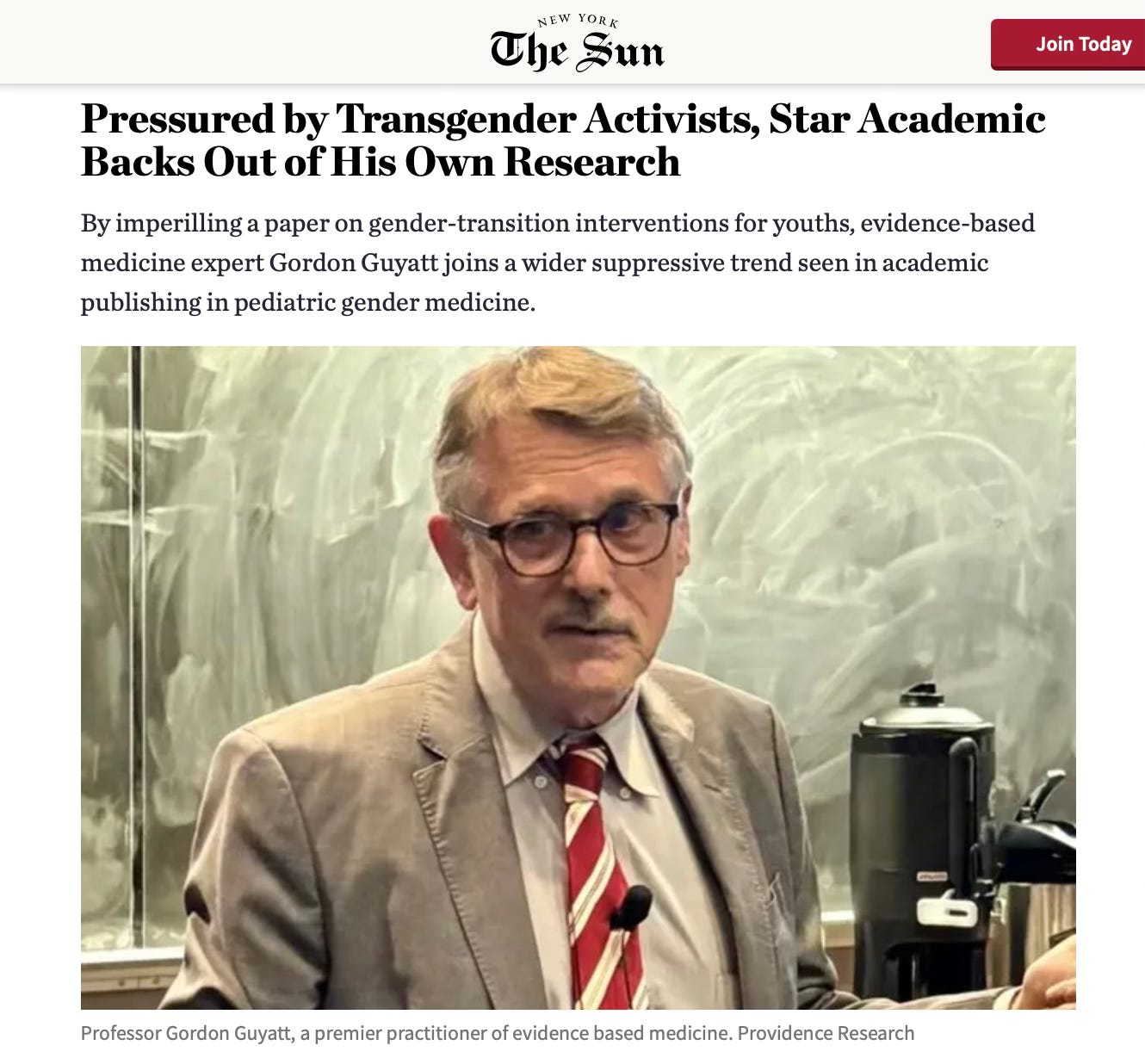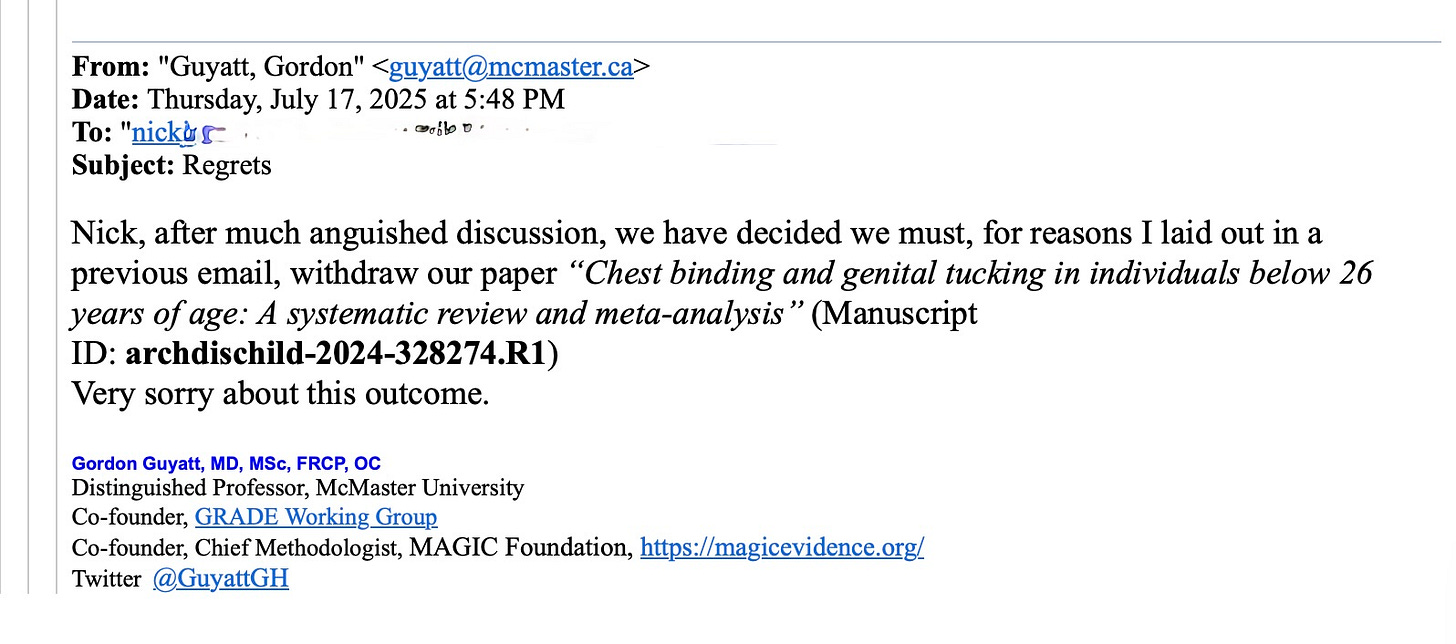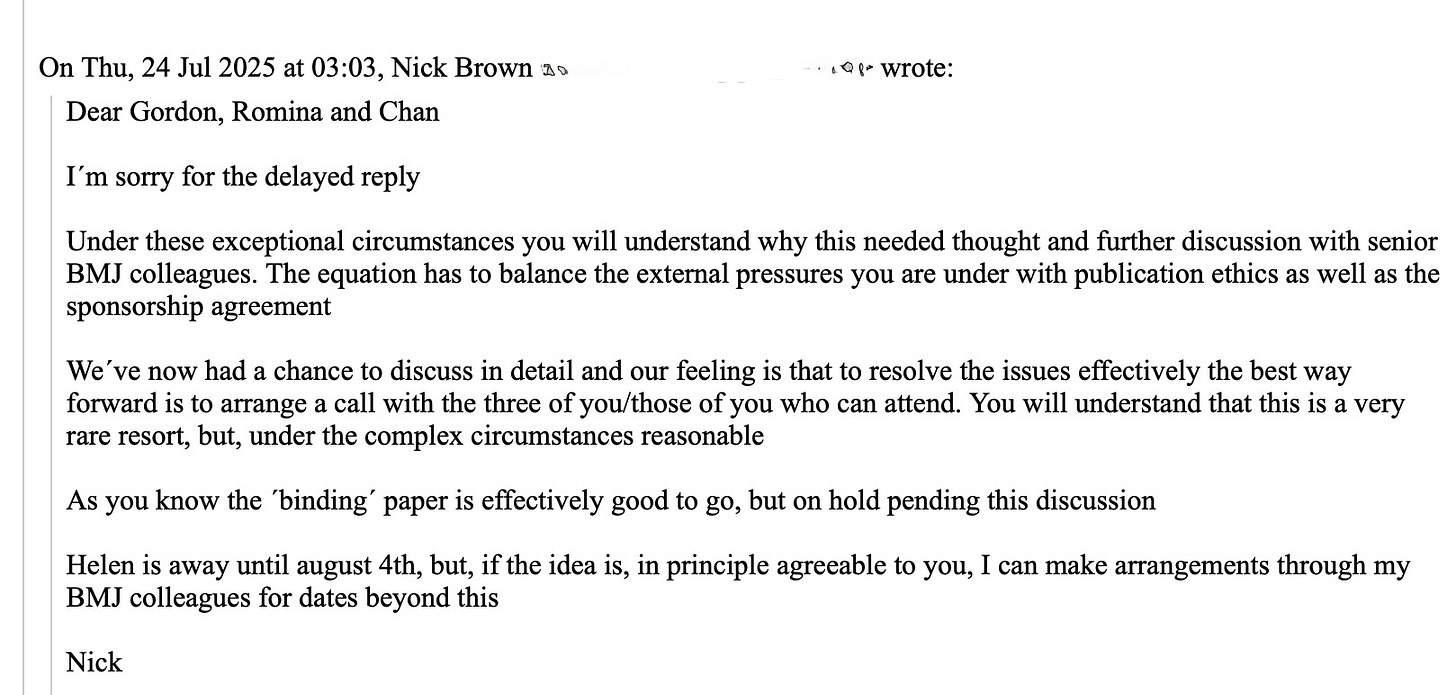What Internal Emails Reveal About Dr. Gordon Guyatt's Retreat From His Own Research
I obtained emails that detail how, when and why evidence-based medicine titan Gordon Guyatt withdrew from his own paper about gender transition interventions under pressure from transgender activists.
I have an article out in The New York Sun that provides new insights into when, how and ostensibly why evidence-based medicine expert Dr. Gordon Guyatt withdrew himself and his junior colleagues at McMaster University in Ontario from one of their five systematic review papers on gender-transition interventions for youths. These papers were commissioned from Dr. Guyatt’s team in 2021 by the Society for Evidence-Based Gender Medicine. SEGM is a U.S.-based nonprofit devoted to scrutinizing the evidence base behind pediatric gender medicine and which has inspired a fiery backlash from trans activists and other progressive groups. I previously detailed how Dr. Guyatt bowed to the activist campaign against his team’s review papers for UnHerd.
I obtained emails dating from July to the end of September that detail exchanges between Dr. Guyatt, editors at the British Medical Journal, or BMJ, and two independent researchers, Dr. Steven Montante, a Virginia-based plastic surgeon, and Chan Kulatunga-Moruzi, a researcher who was previously on faculty at McMaster.
In the emails, Dr. Guyatt repeatedly characterizes as out of his hands the decision to withdraw from the paper in question, which examined the evidence base behind the practices of binding the breasts and “tucking” the penis and scrotum. He points to the fears and anxieties of his younger colleagues as guiding his decision. But he never indicates why he, a seasoned academic veteran with tenure, cannot separate from those younger colleagues and remain as a coauthor on the paper.
One of these younger colleagues is Anna Miroshnychenko, who as a PhD student in Dr. Guyatt’s lab oversaw the SEGM-commissioned review papers. She told me earlier this week that she had just alerted her colleagues that she was willing to rejoin authorship of the tucking and binding paper. She recently finished her PhD and thus felt she could now act independently from her former academic superiors, she told me.
The emails
The emails I obtained start on July 17 with Dr. Guyatt’s announcement to Dr. Nick Brown, an editor at the BMJ, that “after much anguished discussion” among the paper’s coauthors, they would have to withdraw from the binding and tucking paper.
But then Dr. Guyatt realizes that Drs. Kulatunga-Moruzi and Montante are willing to remain as coauthors. At this point, Dr. Guyatt says that he might be willing to rejoin the authorship.
The problem with this arrangement, as it turns out, is that between the two of those independent researchers, their work did not cover the full breadth of the tucking and binding paper. And the BMJ forbids ghost authorship. This puts the paper in limbo. This is also a problem for Dr. Guyatt’s team because failing to publish all five review papers could put them in conflict with their contract with SEGM, which a source told me required publication of all the papers.
Dr. Brown from BMJ responds, calling these “exceptional circumstances.” He calls for a confab to hash out the details.
Keep reading with a 7-day free trial
Subscribe to Hazard Ratio: Benjamin Ryan to keep reading this post and get 7 days of free access to the full post archives.





